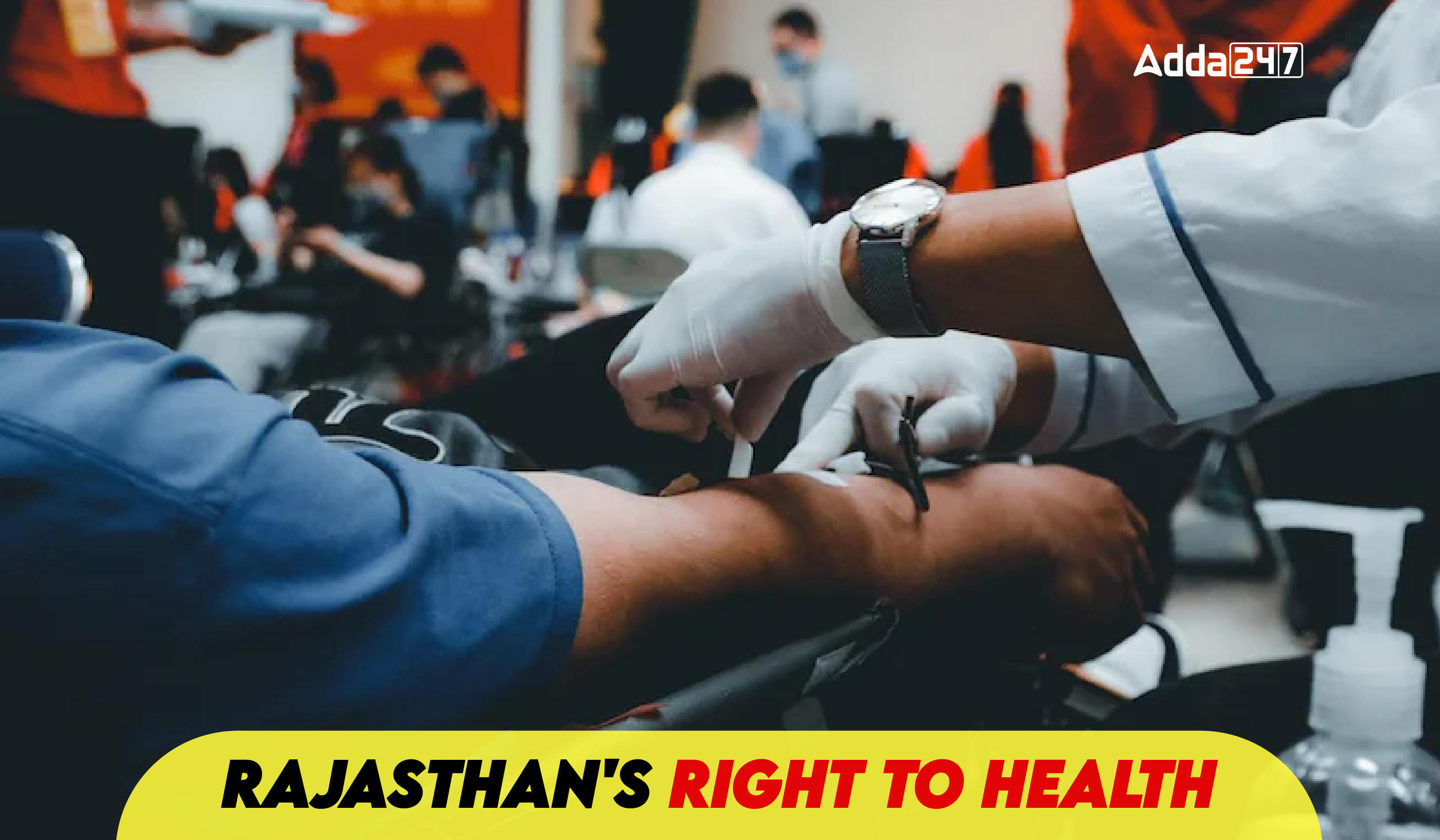Table of Contents
The Rajasthan Government has embarked on a revolutionary path to ensure healthcare for all by enacting the Right to Health Bill. This groundbreaking legislation guarantees every resident of Rajasthan access to free healthcare services at public health facilities, underscoring health as a fundamental human right. This initiative is a monumental stride towards realizing equitable healthcare and sets a commendable precedent for other States to follow.
Right to Health: Meaning
The Right to Health enshrines the principle that every individual is entitled to the highest attainable standard of health, a concept recognized globally as both a basic human right and a Fundamental right. This principle was firmly upheld in the landmark case of Parmanand Katara vs. Union of India (1989), where the Supreme Court of India emphasized that every doctor, whether in a government or private hospital, has an obligation to use their expertise to save lives without delay.
Right to Health in the Indian Constitution
The Right to Health, while not explicitly mentioned in the Indian Constitution, is implicitly derived from the Right to Life under Article 21. The Supreme Court of India has interpreted Article 21 to include the right to live with human dignity, which encompasses the protection of health.
Additionally, Article 47 of the Directive Principles of State Policy places a duty on the State to raise the level of nutrition and the standard of living of its people and to improve public health. These Constitutional provisions collectively underscore the State’s obligation to ensure access to healthcare services for all citizens.
Right to Health Bill: Key Features
The Right to Health Bill introduces several pivotal provisions aimed at transforming Rajasthan’s healthcare landscape:
1. Emergency Treatment: The Bill mandates that hospitals must provide immediate treatment in emergency cases without awaiting medico-legal formalities. This provision includes supplying necessary medicines and transport facilities without any charges to the patient, ensuring that life-saving interventions are not delayed.
2. Free Healthcare Services: The legislation ensures that comprehensive healthcare services, including consultations, drugs, diagnostics, emergency transport, procedures, and emergency care, are available free of charge at all public health institutions. Selected private facilities will also offer these services under specified conditions.
3. Reduction of Out-of-Pocket Expenditures: By providing free healthcare services, the Bill aims to significantly reduce the financial burden on individuals for medical treatment. This is particularly beneficial for the economically weaker sections of society, who often face catastrophic health expenditures.
4. Mandatory Duty on Hospitals: The Bill imposes a mandatory duty on the government and hospitals to provide healthcare services. This obligation is expected to drive significant improvements in healthcare infrastructure and service delivery, ensuring that healthcare facilities are better equipped to serve the population.
5. Improved Access to Healthcare: With the implementation of this Bill, residents of Rajasthan will have access to a broader and more effective range of healthcare services. This is anticipated to lead to improved health outcomes and better living conditions for the State’s population.
Right to Health Bill: Implications
The Right to Health Bill is poised to have far-reaching implications:
1. Enhanced Healthcare Infrastructure: The obligation on the government and healthcare providers to offer free services will necessitate enhancements in healthcare infrastructure across the State. This will likely result in better-equipped hospitals and clinics, capable of meeting the increased demand for services.
2. Financial Relief for Citizens: By alleviating the financial burden of medical expenses, the Bill provides significant relief to families, especially those from lower-income backgrounds. This financial security can improve their overall economic stability and quality of life.
3. Encouraging Preventive Care: Easier access to healthcare services is expected to encourage a greater emphasis on preventive care. Early detection and treatment of diseases can significantly improve health outcomes and reduce the incidence of severe health conditions.
4. Overall Health Improvement: The comprehensive range of services covered by the Bill ensures that more individuals receive timely and adequate medical care. This holistic approach is expected to enhance the general health and well-being of the population, contributing to a healthier society.
Conclusion
In conclusion, the Right to Health Bill passed by the Rajasthan Government is a progressive move towards ensuring equitable healthcare for all its residents. By addressing both emergency and routine healthcare needs, this legislation promises to elevate the quality of life and health standards in the State. The Right to Health Bill not only reflects a commitment to social justice and human rights but also sets a benchmark for other States to emulate in the pursuit of universal healthcare.



 TSPSC Group 1 Question Paper 2024, Downl...
TSPSC Group 1 Question Paper 2024, Downl...
 TSPSC Group 1 Answer key 2024 Out, Downl...
TSPSC Group 1 Answer key 2024 Out, Downl...
 UPSC Prelims 2024 Question Paper, Downlo...
UPSC Prelims 2024 Question Paper, Downlo...




